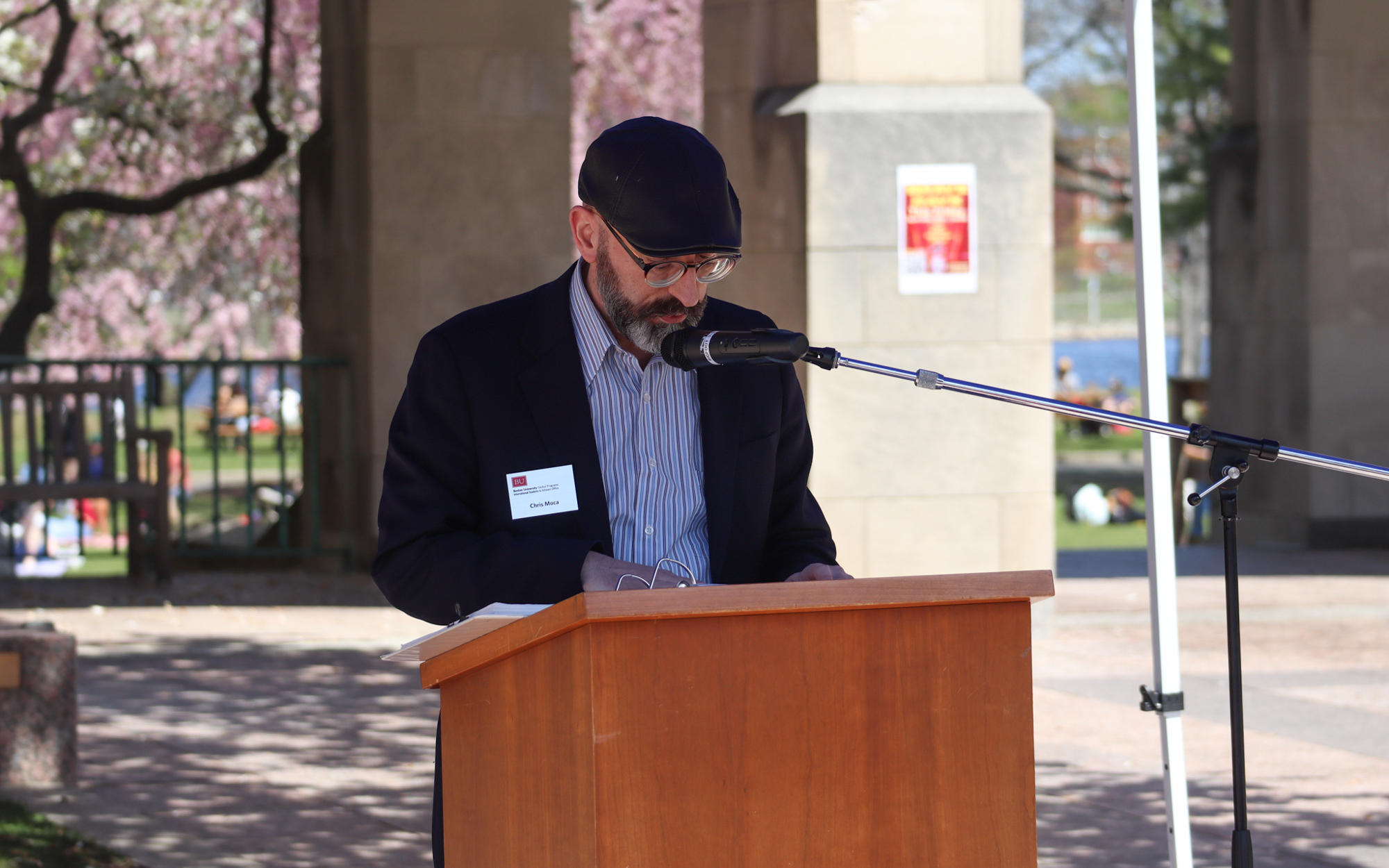Boston University Hillel honored Yom HaShoah, or Holocaust Remembrance Day, Thursday by reading the names of Holocaust victims at Marsh Plaza.

From 9 a.m. to 5 p.m., participating students, faculty and staff volunteers read victims’ names for 10-minute intervals, repeating throughout their shifts that they would not allow the victims to be forgotten.
Some passersby thanked the event holders for their service or asked questions, while others lingered to observe the speakers before continuing on their way.
Deborah Carr, professor of sociology and speaker at the event, said the reading of names serves to remind that genocide continues to happen today, and the victims are “more than numbers.”
“They had lives. They had families. They had livelihoods,” Carr said. “It’s important that we remember them in that way.”
Hillel’s “Reading of the Names” event is held annually, aiming each year to read as many names as possible during the day. Speakers begin reading where the previous year left off in the list to ensure all of the 6 million Jewish Holocaust victims receive recognition.
Brian Kelley, an Evergreen student at BU, opted to sit outside for several minutes before his class to listen to the speakers.
Kelley said it can be easy to forget “there’s people behind all of it,” and the reading of each name serves as a good reminder.
Around 11 a.m., members of the recently added Holocaust, genocide and human rights studies major at the Elie Wiesel Center for Jewish Studies took to the podium to speak about the significance of the day and the work they do at the Center.
Meckenzie Sarage, a senior in the major, said she hopes those walking past Marsh Plaza remember it’s “not just six million that have died, but six million individuals that have died.”
Junior Shirin Huzejrovic said despite not having personal connections to the event, she found deeper meaning in the memorial.
Huzejrovic said her family’s history in the Balkan Wars helped her to relate to the significance of the event. She described grief and remembrance through the name reading as “kind of healing.”
“Part of remembrance is it brings you closer to where you’re from,” Huzejrovic said.
Event participants remarked on the importance of continuing to read out the names of those who lost their lives each year, mentioning the significance of Holocaust memorials in today’s climate.
Hilary Stepansky, an athletic trainer at BU, read names for the first time this year after seeing an opportunity in a faculty and staff email chain.
Stepansky said “it felt like a pertinent time to do something important.”
Despite not liking public speaking, Stepansky said she felt support from everyone at the event and understood the personal significance that reading the names held.
“I just don’t want to see people dying anymore,” Stepansky said. “We went through this once. We said never again, and we meant it.”
This article was published at 8:31 p.m.


















































































































